ARTICLE AD BOX
12 minutes ago
By Janhavee Moole, BBC Marathi

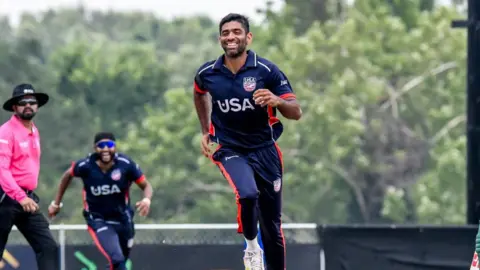 BBC
BBC
Saurabh Netravalkar will be part of the US team facing Indian cricketers in a T20 World Cup match on Wednesday
In 2015, Saurabh Netravalkar gave up his dreams of playing professional cricket in India and moved to the US to work as a software engineer.
“Cricket was over for me. I had no hope or expectation left to play again,” he says.
On Wednesday, almost a decade later, he will face the Indian cricket team in a T20 World Cup match at the Nassau County International Cricket Stadium, New York.
But he will do so as part of the US team.
As he embarks on his World Cup dream, Netravalkar says the match will be an "emotional moment" for a cricketer who once played for India’s Under-19 team.
“Many of my former team-mates are now playing for India,” he tells the BBC.
But he is unfazed about the prospect of facing his friends in a crucial match.
He is full of confidence and it showed in his impeccable bowling last week in a super over that led the US to a historic win against Pakistan.
Netravalkar’s is a story of persistence, a love for cricket and, also, the American dream.
Born and raised in Mumbai, Netravalkar began playing cricket when he was just 10.
His family lived in Malad, a suburb in the western part of the city. After some remarkable performances as a teenager, he was picked to represent India in the 2010 Under-19 World Cup in New Zealand.

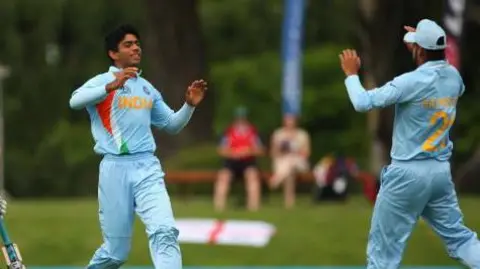 Getty Images
Getty Images
Saurabh Netravalkar played for India in the Under-19 Cricket World Cup in 2010
The tall, left-arm fast bowler emerged as the leading wicket-taker of the tournament for the Indian team.
Over the next few years, Netravalkar balanced his pursuit of cricket while studying to become an engineer, graduating in 2013.
After that, the bowler says he decided to concentrate on cricket, giving himself two years. During this time, he attempted to get a spot in the national team as well as the Mumbai cricket team.
“I got into the [Mumbai] squad too. But I couldn’t cement my place or even get into the Indian Premier League (IPL),” he says.
A cricketer’s career usually starts at 23. But Netravalkar says he decided to leave the sport at that point.
“I was in two minds. Should I pursue cricket or concentrate on studies?” he says.
In 2015, he started studying in Cornell University in the US for a degree in computer science. “It was a difficult decision,” he says.

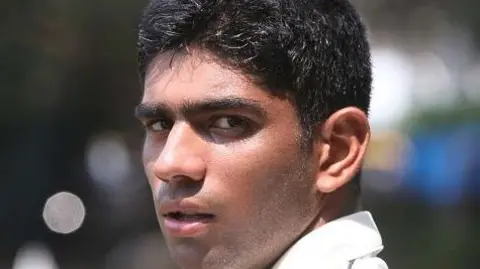 Getty Images
Getty Images
Netravalkar also represented the Mumbai cricket team
But he could never fully let go of his cricket dreams.
During his time as an engineering student in India, he’d already developed CricDeCode, an app to help cricketers analyse their game.
At Cornell, Netravalkar saw students play cricket and joined a club to participate in inter-college tournaments.
Soon after graduating, Netravalkar got a job with software giant Oracle and moved to California.
In San Francisco, Netravalkar began playing club cricket. “They had weekend tournaments. I would work for five days and play on Saturday and Sunday.”
It was far from professional cricket, but it was still a chance to play the game.
“San Francisco still doesn’t have proper pitches. They play on an artificial pitch that’s more like a synthetic mat,” he says. “But they had soil pitches in a park in Los Angeles - it’s like the Maidan [a famous park] in Mumbai.”

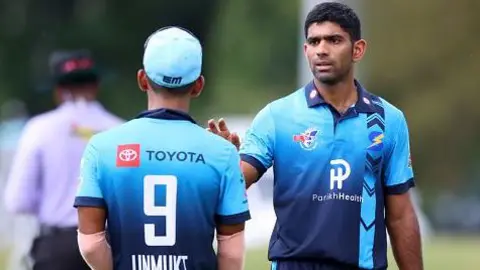 Getty Images
Getty Images
Netravalkar played for the Silicon Valley Strikers during the Minor League Cricket Pacific Conference final in North Carolina in 2022
Every Friday evening, he would drive for six hours to Los Angeles to play a match on Saturday. Then he’d drive back to play a match in San Francisco on Sunday.
“In the club [in Los Angeles], there were three to four players who were part of the American team,” he says. “It was then I got to know that America had a cricket team.”
“On long weekends, they organised tournaments in the country, mostly in Florida, where even players from the West Indies would participate.”
Those tournaments provided a good platform, but Netravalkar was still not dreaming of playing for the US national team.
“I was on a student visa and then a work visa. So there was no question of playing for the team.”
The International Cricket Council (ICC), which governs the sport across the world, also had a rule that required Netravalkar to have lived in the US for seven years and be a permanent resident.
But the rule changed in 2018 and Netravalkar was picked for the US cricket team. In 2019, the ICC also gave international T20 status to all its associate members, including the US.

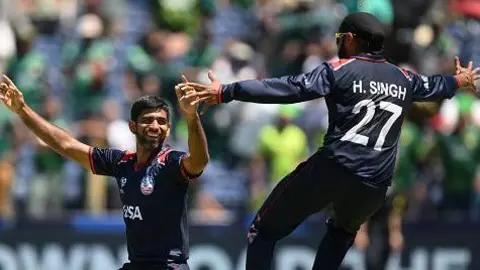 Getty Images
Getty Images
Netravalkar seen celebrating with his team-mate Harmeet Singh after the US defeated Pakistan in a super over during the T20 Cricket World Cup match on 6 June
“Many think it’s easier to play for obscure teams that are considered underdogs,” he says.
“But the struggle is even harder here. Playing for associate countries is difficult because they lack basic infrastructure,” he explains.
All players in the US team also have full-time jobs and juggle family responsibilities.
"So we practise indoors from 7-9pm.”
In a country like the US, distance adds to the struggle of bringing players from different corners to play together.
So the team usually meets 10 days before a tournament to practice.
The US overcame these odds to progress from the upper divisions of associate cricket to playing the T20 World Cup this year. They have already qualified for the 2026 World Cup.
“The standard of local cricket here has gone up,” Netravalkar says.
“Major league and minor league made a huge difference because they gave us a chance to play with top players. There are better grounds being made and pitches are improving.”
Cricket academies in the country are also nurturing new players.
Even as fan following for the sport grows in places like California, Netravalkar says US cricket faces a tough road ahead.

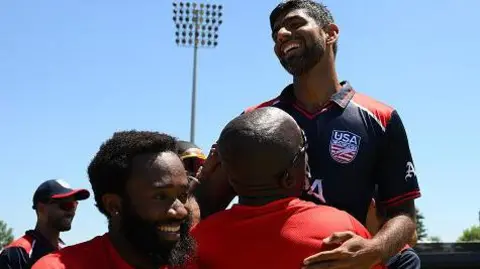 Getty Images
Getty Images
Netravalkar says playing for associate countries like the US brings with it a different kind of pressure
“There’s only one tournament in a year where you play five matches in seven days. So all our efforts throughout the year are tested in just those five days.”
“If you win, then you can go ahead. Or else there’s nothing.”
Before this T20 World Cup, the US beat Bangladesh in a series which boosted their confidence.
Then, in the first game of this tournament, they defeated Canada before going on to upset Pakistan.
Netravalkar is now preparing to face his old team-mates from India in the match on Wednesday.
“It is nice to reconnect with them and I’m happy for what they have achieved - for India and in the IPL,” he says.
Despite facing a star-studded team, Netravalkar is optimistic about his team’s chances.
“They [India] practise for hours and we had very limited resources. But anything can happen in T20,” he says.
“We are positive. We will give our best in those three hours.”

 7 months ago
20
7 months ago
20
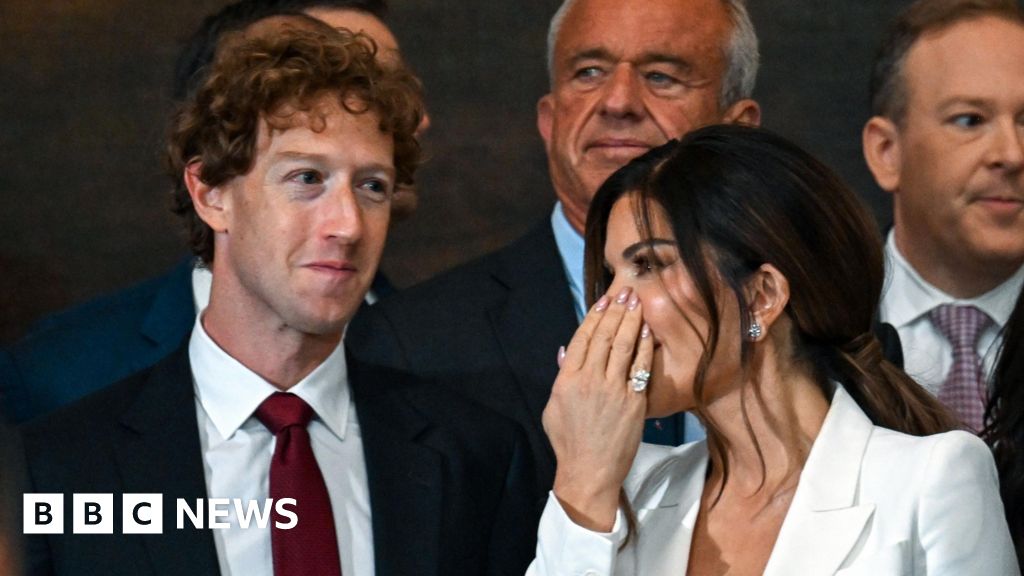
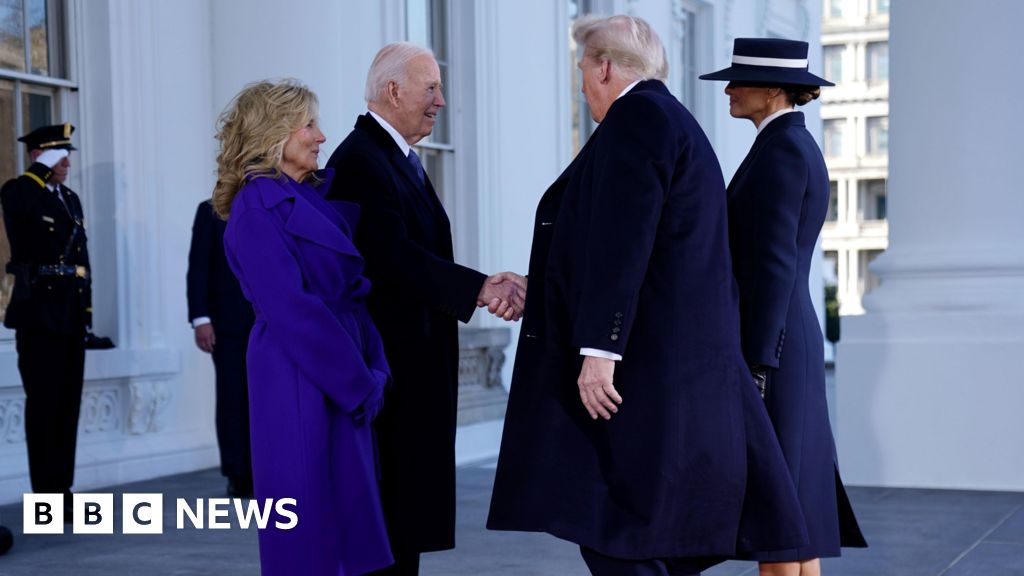
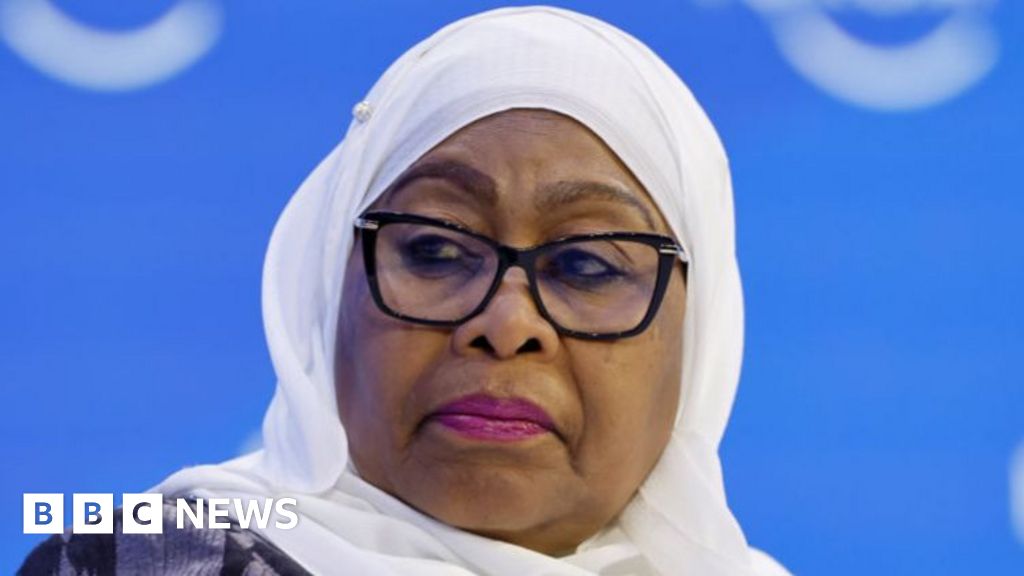





 English (US) ·
English (US) ·